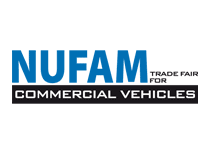Predictive maintenance and condition monitoring: How to reduce truck breakdowns
Truck breakdowns are not only annoying for logistics companies, they also cost a lot of money. Modern approaches such as predictive maintenance and condition monitoring are designed to remedy this situation. Several approaches will be presented at NUFAM.
Tyre punctures, brake failure or broken springs: many of the problems encountered by truck drivers in their daily work could be avoided if technical defects were detected in good time and repaired as a precautionary measure. Every unplanned breakdown not only means repair costs, but also lost revenue, dissatisfied customers and disrupted supply chains.
Modern approaches such as predictive maintenance and condition monitoring promise to remedy this situation. These approaches involve the intelligent use of sensor data, telematics and artificial intelligence.
Predictive maintenance (PdM) is a maintenance approach in which maintenance measures are not carried out at fixed intervals or in the event of a malfunction, but at the optimal time based on real condition data. The aim is to detect damage at an early stage and schedule maintenance when it is really necessary – not too early, not too late.
Data analysis is the key
Unlike traditional preventive maintenance, predictive maintenance saves both the costs of unnecessary repairs and the follow-up costs of breakdowns. The key lies in data analysis: information from sensors, control units, telematics systems and digital vehicle inspections is collected, evaluated and translated into predictive maintenance recommendations.
Condition monitoring forms the basis for predictive maintenance. This involves continuously recording data on the technical condition of a vehicle or individual components. Examples include oil temperature, tyre pressure and brake pad thickness.
Ideally, this data is fed into a central fleet management system that uses algorithms to recognise patterns and predict the probability of failure. Based on these analyses, workshop appointments can be planned automatically and as needed.
AI as a turbocharger
Predictive maintenance becomes particularly powerful through the use of artificial intelligence (AI): machine learning algorithms detect anomalies at an early stage and learn from historical maintenance cases to calculate the probability of failure of individual components.
Predictive maintenance and condition monitoring offer many advantages for fleet operators. Unplanned downtime is reduced, workshop visits are shortened and the service life of vehicle components is extended. Overall, costs are reduced and fleet operations can be planned more effectively. Last but not least, road safety also benefits.
Predictive maintenance at NUFAM
Predictive maintenance is also a topic at NUFAM, of course. Exhibitors such as BPW, Bosch, Continental, S&G Automobil AG (Daimler Truck), IVECO Süd-West Nutzfahrzeuge, Scania and ZF are showcasing corresponding solutions. At Daimler Truck, the corresponding system is called ‘Mercedes-Benz Uptime’. It continuously monitors all relevant vehicle data – from the engine to the drivetrain to the exhaust system. If problems arise, it automatically informs the head office, workshop and operator. Maintenance recommendations are made in real time, often before damage occurs.
IVECO addresses this issue with IVECO ON. IVECO's digital ecosystem combines connected services, fleet management, remote diagnostics, driver management and predictive maintenance in a single platform. The ProCare solution developed by Scania uses real-time data from over 500 sensor points in the vehicle – including oil condition, brake pads, exhaust emissions, filters, cooling, clutch and many other components. If critical wear or a problem is imminent, the customer is notified – including a suggested appointment and workshop.
ZF has implemented several approaches to predictive maintenance with SCALAR and its in-house telematics platform Openmatics. ZF uses sensor data from telematics systems, for example from axles, brakes or cooling units. Combined with AI algorithms, maintenance requirements can be predicted and services can be planned intelligently.
Under the name cargofleet3, the BPW Group combines telematics with predictive maintenance for trailer axles, air suspension and brakes. The cargofleet3 platform informs fleet operators in good time about service requirements – with the aim of ‘maintenance by mileage’. Bosch and Continental are also represented at NUFAM: Bosch offers predictive maintenance as a platform solution for OEMs and workshops, while Continental is working on real-time monitoring systems for tyres, axles and suspensions.

